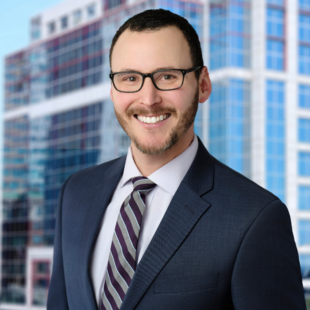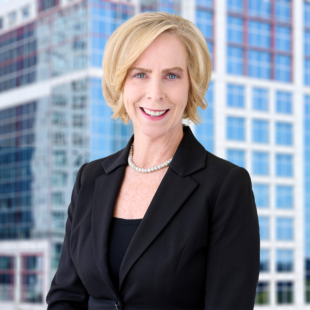On September 11, 2024, Massachusetts Governor Maura Healey signed into law a bill which will create 225 new liquor licenses in the City of Boston over the next three years. The bill, formally titled “An Act authorizing additional licenses for the sale of alcoholic beverages to be drunk on the premises in the City of Boston,” was agreed upon by Massachusetts House and Senate leadership after nearly a year of hearings, committees, and several amendments, delivering Boston its first major expansion of alcohol licensure since 2014.
With the long-awaited license expansion bill now approved, entrepreneurs have already commenced location scouting and diligence activities for the development of new restaurants, wine bars, eateries, and more. Here are some answers to commonly asked questions about the new batch of licenses:
Q: What categories of licenses were created as part of the bill?
The license expansion bill creates two categories of new licenses: Restricted and Unrestricted.
Restricted Licenses
- Neighborhood Licenses. 195 new licenses will be available as “neighborhood restricted” licenses, designated for thirteen (13) Boston zip codes in Roxbury, Dorchester, Mattapan, Hyde Park, Jamaica Plain, Roslindale, Charlestown, East Boston, and the South End. A license granted pursuant to the new bill will be required to offer food prepared on-site, and subject to underlying zoning ordinances and approval by local and state licensing authorities.
- Community Licenses. 15 new “all alcohol” licenses are reserved for “community spaces” including: (i) non-profits; (ii) small theaters; and (iii) outdoor spaces. While “community spaces” are generally understood to reference areas used by the public for recreational programs and activities, the bill does not contain more definitive terms around these categories, other than a prohibition against licensure of a theater with an occupancy limit over 750. It is anticipated that further guidance and parameters around qualifying businesses and locations will be made available by the City of Boston.
- Oak Square Licenses. The Oak Square neighborhood in Brighton will have 3 new restricted all-alcohol licenses available for utilization. While the bill does not define the specific geographical parameters of the neighborhood, it will likely be contained to portions of the “Neighborhood Shopping Subdistrict” in the underlying Allston/Brighton Neighborhood Zoning District. A license granted in this neighborhood will be required to offer food prepared on-site and subject to underlying zoning ordinances and approval by local and state licensing authorities.
Unrestricted Licenses.
Twelve (12) new “unrestricted” all-alcohol licenses will be available for use anywhere in the City of Boston, subject to underlying zoning ordinances and approval by local and state licensing authorities. The new licenses will be issued and regulated in the same manner as the current 665 unrestricted all-alcohol pouring licenses in Boston and can be transferred to new locations and sold by license holders to new operators.
Q: What prompted the interest in increasing the number of liquor licenses in Boston?
There is a longstanding limitation on the number of liquor licenses available in Boston. The city’s liquor license quota is capped by state law which regulates the number of establishments serving alcohol in any given municipality. The cap, currently found in Section 17 of M.G.L.c. Chapter 138 (Massachusetts Liquor Control Act), was put into effect after Prohibition and initially implemented to prevent over-saturation of bars and address concerns about public safety.
Over time, due to several factors including increased tourism, population growth, and rapid expansion of commercial districts within Boston, the number of restaurants and public demand quickly outpaced the number of liquor licenses available under the quota. This high demand commoditized the license market and – while the commercial expansion and restaurant growth in Boston has been of significant benefit to many city residents, consumers, and tourists – the increased cost of an individual liquor license made it untenable for smaller businesses to afford licensure and has left many Boston neighborhoods with a dearth of restaurant options.
The bill is seen as a measure to: (i) increase equity and create economic opportunities for restaurant owners across the city, including increased profit margins from alcohol sales; and (ii) mitigate the high costs and scarcity that currently push chefs and restaurateurs to neighboring cities with more accessible licensing options.
Q: How and where will the Neighborhood Restricted Licenses be issued?
For three years, beginning in 2024, the City of Boston Licensing Board is authorized to issue up to five (5) restricted pouring licenses annually for select zip codes, including up to three (3) all-alcohol licenses and up to two (2) beer and wine licenses. The licenses will remain available until granted. If the Licensing Board does not grant all five (5) licenses in a given year, the additional licenses will roll over until all of the aggregate licenses are granted.
Similar to all other alcoholic beverage pouring licenses in Boston, before the license can be issued it will have to be approved by both the Boston Licensing Board and the Massachusetts Alcoholic Beverages Control Commission.
The following zip codes will be eligible for five (5) Restricted Licenses annually for three (3) years:
| Zip Code | Neighborhood |
| 02118 | South End, Roxbury |
| 02119 | Roxbury |
| 02121 | Dorchester (Grove Hall area) |
| 02122 | Dorchester (Neponset, Fields Corner) |
| 02124 | Dorchester (Ashmont, Lower Mills, Codman Square, Peabody Square) |
| 02125 | Dorchester (Columbia Point, Savin Hill) |
| 02126 | Mattapan |
| 02128 | East Boston |
| 02129 | Charlestown |
| 02130 | Jamaica Plain |
| 02131 | Roslindale |
| 02132 | West Roxbury |
| 02136 | Hyde Park |
The following neighborhood will be eligible for a total of three (3) All Alcohol Restricted Licenses beginning in 2024:
| Zip Code | Neighborhood |
| 02135 | Oak Square (Brighton) |
Q: Can the new Restricted Licenses be purchased, sold, or transferred to another location?
In short, no. Unlike an unrestricted or “value” license, which can be sold and transferred within the City of Boston, the Restricted Licenses cannot be sold to another business or transferred to a new location.
If a restaurant with a Restricted License goes out of business, fails to renew its license, or if the license is canceled or revoked by the city or state, it must be physically returned to the Boston Licensing Board, which can then grant the Restricted License to a new applicant in the same zip code where the original license was issued.
Q: Will this bill impact the value of current “unrestricted licenses” in Boston? What will be the effect on restaurants, bars, and hotels that previously purchased “value” licenses?
Many restaurant owners have valid concerns over whether license expansion could impact valuations of unrestricted licenses.
There is historical precedent to suggest there will be limited long-term impact on the value of unrestricted liquor licenses and that the introduction of new neighborhood restricted licenses will primarily impact the areas which have not historically competed for value licenses. For example, since 2014 when the most recent batch of neighborhood restricted licenses were approved, the value of unrestricted liquor licenses in Boston has increased between 20-30%. This is largely due to the flexibility these unrestricted licenses offer, which allow: (i) businesses to operate in any part of the city without the geographic or operational restrictions tied to neighborhood restricted licenses; (ii) the use of the value license as collateral for a business loan; and (iii) inclusion of the license as a value asset in the sale of a licensed business. Despite the introduction of new or restricted licenses in 2014 (and in prior years), unrestricted licenses continue to appreciate and retain market value due to their broad applicability and rarity.
In the current situation, the issuance of 225 new neighborhood restricted licenses is expected to follow a similar trend. While these new licenses will increase much needed access, especially in underserved neighborhoods, their geographic limitations will likely preserve the value of unrestricted licenses, with minimal negative impact on the latter’s value over time.
Q: Where can I find more information?
The Liquor License Expansion Bill. The full text of H.5039 “An Act authorizing additional licenses for the sale of alcoholic beverages to be drunk on the premises in the City of Boston” can be found here.
Liquor License Legislation Webinar. On September 30 from 4:00p.m. to 5:00p.m., the Boston Licensing Board and Office of Economic Opportunity and Inclusion are hosting a free webinar on the state’s recent liquor license legislation, which will include information on the new license application process and other important information. Registration for the webinar can be found here.
Adam Barnosky chairs RIW’s Hospitality Practice Group and handles alcoholic beverage licensing and corporate transactions for restaurant and hospitality industry clients, including independent and national restaurant groups, luxury hotels, sports and entertainment venues, food halls, retailers, hospitality lenders, and James Beard Award-winning chefs and operators. Adam can be reached at arb@riw.com.





